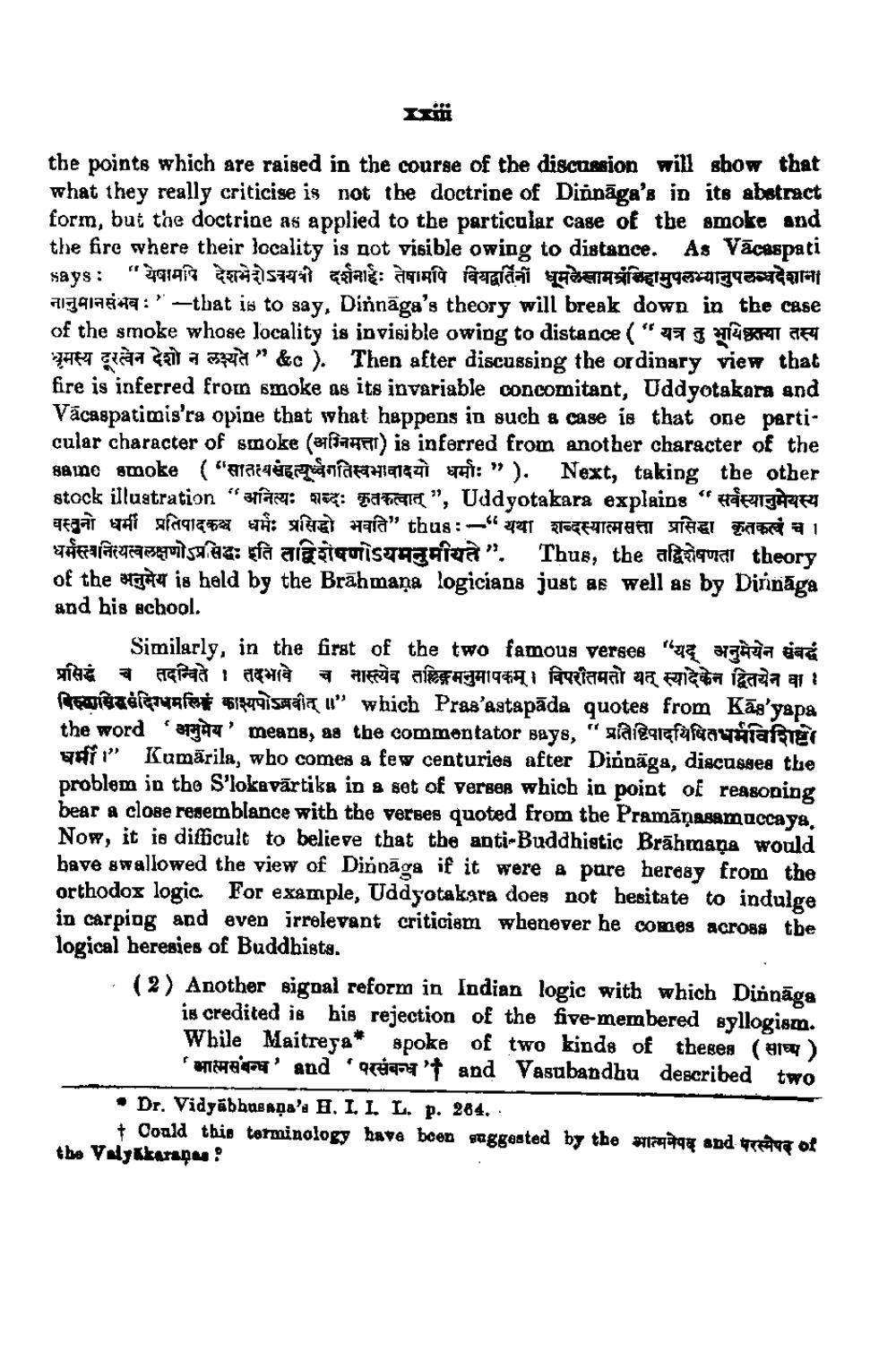________________
the points which are raised in the course of the discussion will show that what they really criticise is not the doctrine of Diänāga's in its abstract form, but the doctrine as applied to the particular case of the smoke and the fire where their locality is not visible owing to distance. As Vācaspati says : "येषामपि देशभेदोऽजयवी दर्शनाईः तेषामपि वियद्वर्तिनी धूमलेखामलिहामुपलभ्यानुपलब्धदेशाना aigias49:"—that is to say, Dinnāga's theory will break down in the case of the smoke whose locality is invisible owing to distance (" 17 3 YUKRI AR
e cila pia" &c). Then after discussing the ordinary view that fire is inferred from smoke as its invariable concomitant, Uddyotakara and Vācaspatimis'ra opine that what happens in such a case is that one particular character of smoke (PIJAHAI) is inferred from another character of the same smoke ( "arazader yanlara 1914 4:"). Next, taking the other stock illustration “अनित्यः शब्दः कृतकत्वात् ", Uddyotakara explains " सर्वस्यानुमेयस्य afgai spei sidqiqTÅ: Sig Hala" thus:"421 RTEFEATHEET SÀGI 1
Ahla isuaa: fà ara sigurishgaiga". Thus, the aliqual theory of the author is held by the Brāhmaṇa logicians just as well as by Dirināga and his school.
Similarly, in the first of the two famous verses ac aqua gjate प्रसिद्धं च तदन्विते । तदभावे च नास्त्येव तलिङ्गमनुमापकम् । विपरीतमतो यत् स्यादेकेन द्वितयेन वा । ferraigadlem af 619491 saa l" which Pras'astapāda quotes from Kās'yapa the word 'apaa' means, as the commentator says, "saibarafufuauitate waii" Kumärila, who comes a few centuries after Dinnāga, discusses the problem in the S'lokavārtika in a set of verses which in point of reasoning bear a close resemblance with the verses quoted from the Pramāṇasamuccaya, Non, it is difficult to believe that the anti-Buddhistic Brāhmaṇa would bave swallowed the view of Dinnāga if it were a pare hereay from the orthodox logic. For example, Uddyotakara does not hesitate to indulge in carping and even irrelevant criticiem whenever he comes across tbe logical heresies of Buddhists. · (2) Another signal reform in Indian logic with which Dinnāga
is credited is his rejection of the five-membered syllogisma. While Maitreya* epoke of two kinds of theses (919)
M ' and quant't and Vasubandhu described two • Dr. Vidyabhasana'. II. L. p. 284,
+ Coald this terminology have been suggested by the mid9 and of the Vaykkarafu




